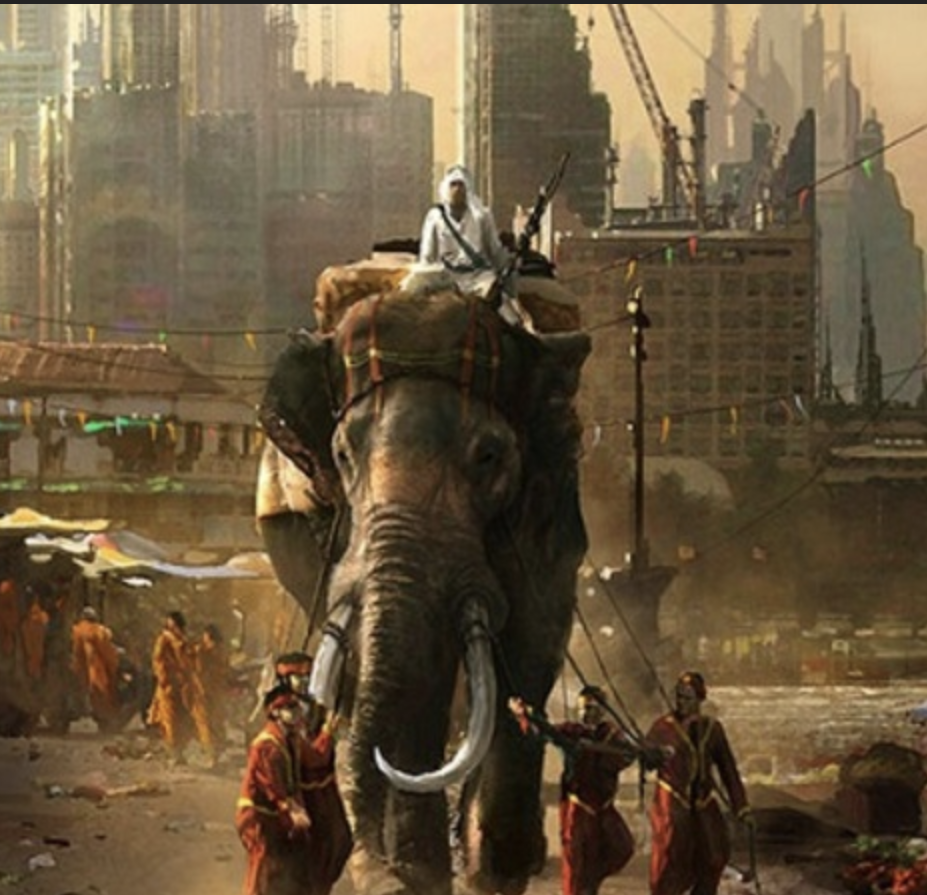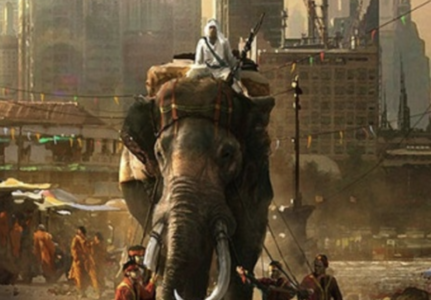Short Autobiography
Paolo Bacigalupi, born in 1972, hails from Colorado, USA. His fascination with science fiction and fantasy blossomed in childhood, influenced by his Italian heritage and the rugged landscapes of the American West. Bacigalupi studied at Oberlin College, where he developed his passion for writing. Before becoming a full-time author, he worked as a technical writer and in the field of publishing. His diverse background enriches his storytelling, infusing his narratives with a unique blend of social commentary and speculative imagination.
Genres
Bacigalupi’s literary repertoire spans across various genres, with a notable focus on science fiction, dystopia, and cli-fi (climate fiction). He masterfully blends elements of speculative fiction with socio-political commentary, creating immersive worlds that reflect contemporary issues with eerie prescience. His works often delve into the consequences of environmental degradation, societal collapse, and the ethical dilemmas posed by advancing technology.
Paolo Bacigalupi’s Key Books
1. The Windup Girl (2009)
Set in a future Thailand ravaged by bioterrorism and climate change, this Hugo and Nebula Award-winning novel follows the struggles of Emiko, a genetically engineered “windup” designed for servitude. Bacigalupi intricately weaves together themes of corporate greed, genetic manipulation, and cultural identity in a vividly realized world.
2. Ship Breaker (2010)
Winner of the Michael L. Printz Award, this young adult novel transports readers to a post-apocalyptic Gulf Coast, where Nailer, a teenage scavenger, dreams of a better life beyond the wreckage. Bacigalupi paints a gritty portrait of survival amidst societal collapse, exploring themes of class disparity, resilience, and the human cost of progress.

3. The Water Knife (2015)
Set in a future America plagued by water scarcity, this thriller follows the exploits of water knife Angel Velasquez as he navigates the cutthroat world of water rights and political intrigue in the drought-stricken Southwest. Bacigalupi’s chilling depiction of a society on the brink of collapse serves as a cautionary tale about the consequences of environmental exploitation.
4. The Drowned Cities (2012)
A companion novel to Ship Breaker, this gripping tale explores the brutal realities of war and survival in a drowned Washington, D.C. Bacigalupi delves into themes of loyalty, identity, and the cycle of violence, offering a visceral portrayal of humanity’s capacity for both cruelty and compassion.
5. The Doubt Factory (2014)
In this contemporary thriller, Bacigalupi tackles the ethics of corporate manipulation and media influence through the story of Alix, whose world is upended when she discovers the truth behind her father’s employer, a PR firm specializing in manufacturing doubt. The novel delves into themes of truth, deception, and the power of information in shaping public perception.

Key Themes
Environmental Degradation
Bacigalupi’s works often explore the devastating consequences of environmental degradation, from water scarcity to bioterrorism. Through his vividly imagined worlds, he highlights the urgency of addressing climate change and the ethical implications of humanity’s impact on the planet. In The Water Knife and The Windup Girl, environmental collapse serves as a backdrop for narratives that delve into the complexities of power, exploitation, and survival in a world ravaged by climate catastrophe.
Socio-Political Commentary
Bacigalupi’s narratives are imbued with incisive socio-political commentary, critiquing issues such as corporate greed, social inequality, and governmental corruption. He challenges readers to confront uncomfortable truths about the present by extrapolating them into dystopian futures. In The Doubt Factory, he examines the manipulation of truth in the media and the ethical responsibilities of corporations, prompting readers to question the influence of propaganda and misinformation on public discourse.
Human Resilience
Amidst the bleak landscapes of his dystopian worlds, Bacigalupi celebrates the resilience of the human spirit. His characters navigate adversity with courage and resourcefulness, embodying the capacity for hope and redemption even in the darkest of times. In Ship Breaker and The Drowned Cities, protagonists confront harrowing challenges with determination and ingenuity, showcasing the indomitable spirit of humanity in the face of overwhelming odds.
Ethical Dilemmas
Bacigalupi’s works frequently explore complex ethical dilemmas arising from technological advancements, environmental crises, and societal collapse. In The Windup Girl, he grapples with questions of bioethics and genetic engineering, raising concerns about the exploitation of marginalized communities for scientific progress. Similarly, in The Water Knife, he confronts the moral implications of water rights and resource scarcity, forcing characters to confront difficult choices in a world where survival often comes at a steep price.
Identity and Belonging
Identity and belonging are recurring themes in Bacigalupi’s works, as characters navigate shifting landscapes and fractured societies in search of purpose and connection. In Ship Breaker, Nailer struggles to reconcile his loyalty to his makeshift family with his desire for a better life beyond the confines of his scavenger existence. Likewise, in The Drowned Cities, orphaned refugees Mahlia and Mouse grapple with questions of identity and allegiance as they navigate the violent aftermath of war-torn cities.
Inspiration
Bacigalupi draws inspiration from a myriad of sources, including current events, scientific advancements, and his own experiences. His background in environmental studies informs his exploration of ecological themes, while his travels and observations of different cultures enrich the authenticity of his world-building. Bacigalupi’s commitment to addressing pressing societal issues fuels his creative endeavors, driving him to craft narratives that provoke thought and spark conversation. The urgency of climate change, the complexities of socio-political dynamics, and the resilience of the human spirit are all recurring themes that inspire Bacigalupi’s storytelling. He seeks to illuminate the interconnectedness of these themes and challenge readers to confront the realities of our world through the lens of speculative fiction.
Reviews
Bacigalupi’s works have garnered widespread acclaim from critics and readers alike for their thought-provoking narratives, compelling characters, and immersive world-building. Critics praise his ability to blend speculative fiction with social commentary, creating stories that are both intellectually stimulating and emotionally resonant. With each new release, Bacigalupi continues to captivate audiences with his visionary storytelling and incisive exploration of pressing global concerns.
Similar Books and Authors
- Margaret Atwood: Known for her dystopian masterpiece The Handmaid’s Tale, Atwood explores themes of oppression, feminism, and environmental degradation in her speculative fiction. Margaret Atwood
- Octavia E. Butler: Butler’s works, such as Parable of the Sower and Kindred, blend elements of science fiction with social commentary, addressing themes of race, power, and resilience. Octavia E. Butler
- Kim Stanley Robinson: Robinson’s Mars trilogy and New York 2140 envision futures shaped by climate change, exploring the resilience of humanity in the face of environmental catastrophe. Kim Stanley Robinson
In the realm of speculative fiction, Bacigalupi stands as a luminary, challenging readers to confront the pressing issues of our time through the lens of imagined futures. With his thought-provoking narratives and unflinching exploration of societal ills, he continues to inspire readers to contemplate the world we inhabit and the futures we may yet forge.


